Canadian war vet denied access to N.S. veterans hospital
A Canadian war veteran is being denied access to a Halifax veterans hospital even though there are empty beds in the facility — all because he wasn't Canadian at the time of his wartime service.
Sitting recently in his home in Hubbards, N.S., 91-year-old Gordon Smith showed off the medals on his tunic. There's one for good conduct in the Royal Canadian Air Force and one representing his time in the fire service.
There's a war medal from the British Royal Navy for service during the Second World War and the one that means the most to him — a medal representing his volunteer service in the British Civil Defence Corps.
When he was just 14 years old in London, England, Smith signed up to carry stretchers.
"I carried so many injured and dead," he said, his voice breaking with emotion. "It stays with me."
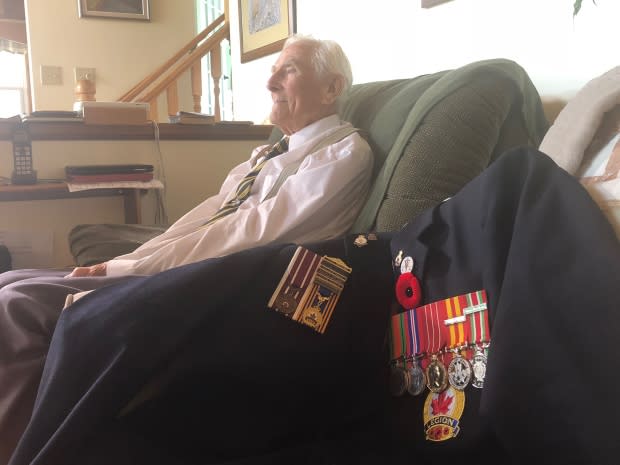
When he was 17, Smith enlisted in the Royal Navy, sailing the North Sea searching for debris and bodies. He was on guard on VE Day. After the war, he immigrated to Canada and served in the Royal Canadian Air Force as a firefighter for 18 years.
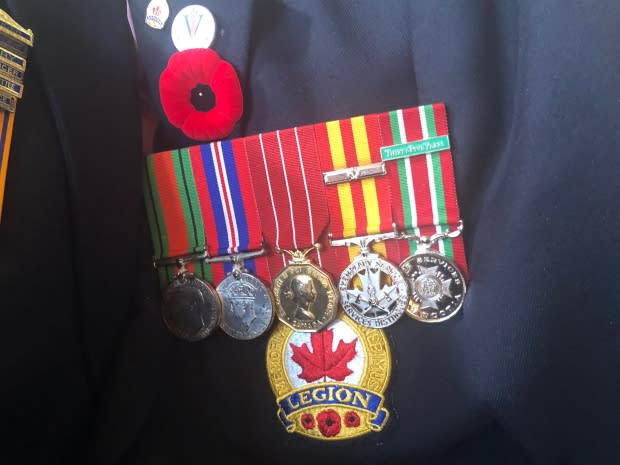
Upon retiring from Canada's air force, Smith volunteered for another 20 years with the Royal Canadian Legion, visiting veterans in long-term care to ensure they were getting the care they needed.
Smith has been a Canadian citizen for 51 years, and he always thought he would end up in a place like Camp Hill Veterans Memorial in Halifax. But it isn't working out that way.
Smith's granddaughter, Sabrina Smith, said Veterans Affairs has told her family her grandfather can't go to Camp Hill because the majority of beds at the facility are for war veterans. And because Smith's service during wartime wasn't with the Canadian Forces — but rather an allied force — he isn't considered a Canadian war veteran.
"They're completely disqualifying him on the fact that he wasn't with the Canadian Forces at the time," said Sabrina Smith.
Not Canadian during wartime
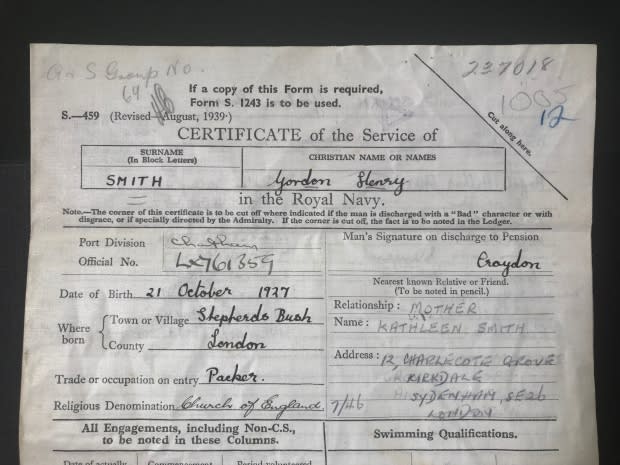
Gordon Smith does have a letter and a certificate from the Canadian government, signed by former prime minister Stephen Harper, recognizing his "service and sacrifice during the Second World War, in defence of Canada and our shared values of freedom, democracy and the rule of law."
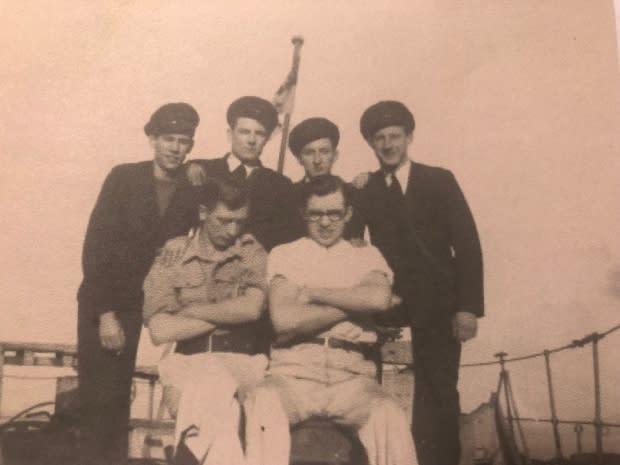
His granddaughter said she is disappointed in the Canadian government.
"He went out there in 1945 as a 17-year-old, he enlisted on his own, of his own free will, and he risked his life for us," she said. "So for me, it's not acceptable that he doesn't get, number one, the recognition that he deserves, and number two, the services that come along with that."
Adding to the family's frustration is the fact that 29 of the beds designated for Canadian war veterans at Camp Hill are empty.
A spokesperson for the Minister of Veterans Affairs said allied vets can only have access to those beds if there is no other place for them to receive the care they need, which is not the case for Smith.
Smith's Member of Parliament, Bernadette Jordan, said she is aware of the situation and is working with the Minister's office to try to find a solution.
"Our view is that any veteran, regardless of their age, when they're in need of special care, should be entitled to have a special care bed," said Mel Crowe, president of Nova Scotia Nunavut Command of the Royal Canadian Legion.
Smith is not the first veteran to face difficulties accessing a bed at Camp Hill. In 2016, Norwegian-Canadian war vet Petter Blindheim was denied access to the facility, until public protests prompted a review by Veterans Affairs, which increased access to the facilities for some veterans.
Expanded access
As of June 2016, there are actually 25 beds set aside at Camp Hill for any veteran who is eligible for care, including Canadian Armed Forces veterans and allied veterans. That doesn't help Gordon Smith, because those beds are currently all in use, and his family has been told the wait list is so long, there's no point in being on it.
The Minister's office says there are 30 people on the wait list and placement is not determined by the person who is next on the list, but rather by the person in greatest need. Veterans eligible for these beds also qualify for any other provincially licensed long-term care bed.
But that's not what Smith wants.
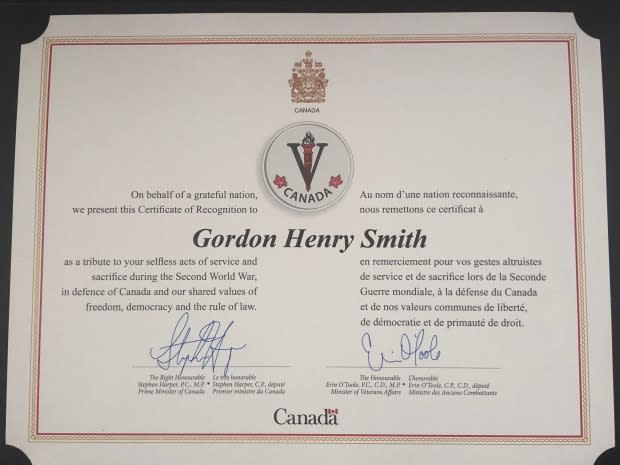
"It's the comradeship," he said. "It's the fact that you'll be talking to people that had similar experiences — not the same, but similar experiences to what you have. You already have something in common."
Smith said his health is declining, and he has decreased mobility.
"I've recently had an operation for cancer. I've had my right shoulder replaced, my right hip replaced, and I know that my health will not improve," he said.
Smith said he's not bitter about the government's decision, because he's happy to be recognized as a Canadian. He just wants to finish his days in a place where he feels comfortable.
His family wants Veterans Affairs to count his wartime service and reverse its decision. They know time is not on their side.
"I'm grateful that my grandfather has people to advocate on his behalf," said Sabrina Smith, "and it makes me really worried for the people who don't."

